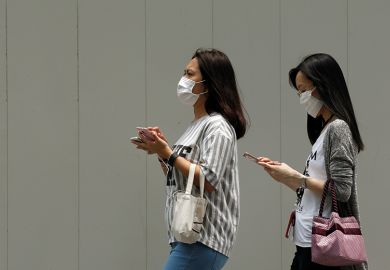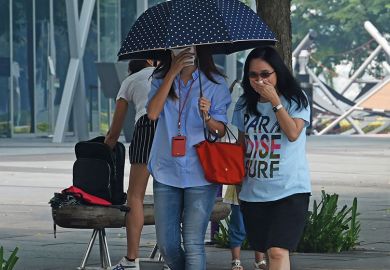The Singaporean Parliament recently passed the Protection from Online Falsehoods and Manipulation Act (POFMA). It was the culmination of a long process stretching over almost two years, including public consultations, a parliamentary green paper, select committee hearings and thorough parliamentary debate.
In the process, the many concerns of different stakeholders – activists, academics, journalists – were examined and dealt with openly.
The problem of online falsehoods is a serious one. It has distorted political processes, eroded trust in public institutions, exacerbated public and societal tensions and threatened the very foundations of democracy. Governments around the world, including the UK’s, are working hard to find ways to deal with online falsehoods.
POFMA empowers a minister to direct the correction or removal of a false statement of fact that affects the public interest. But a correction directed by a minister is just that – a correction juxtaposed with the alleged false statement. The writer can challenge the minister’s order and the courts will be the final arbiter.
The minister’s directive in itself does not constitute a criminal punishment. For there to be criminal liability, the propagator of the falsehood must have known or had reason to believe that the statement was false and was likely to prejudice public interest. In which case, the propagator of such falsehoods may be subject to prosecution and the court’s verdict.
Despite extensive explanations, misconceptions remain. Some academics still maintain that POFMA will hobble them because it protects only the freedom to express personal opinion. Their scholarly works may contain contentious statements of “facts”, which can be penalised under the new law, they argue.
An example is professor Linda Lim’s recent comment piece “Singapore’s ‘fake news’ law undermines the credibility of academic expertise”.
This is a misunderstanding of the law. Academic research should not, and will not, be subject to POFMA.
What is or is not a fact, and what is false or misleading, is defined by well-established jurisprudence.
For example, to state that a group of immigrants has assaulted a local girl, Turkey has joined the EU or that a deadly disease is spreading among the population, when none of these things has happened, are false facts under the law. Criticisms of income inequality, or the government’s handling of it, are opinions, not facts.
Academic research is based on data and observations. Unless the data is false – in which case, academic institutions themselves would discipline the academic – empirical research, including work that challenges or disproves well-established theories, will not be caught by the act.
Newton’s laws of physics have been superseded by Einstein’s theory of relativity, and Einstein’s own conviction that quantum particles could not be entangled has been proved wrong. POFMA does not apply to either. Singapore has and continues to welcome ground-breaking research to better understand nature and the world.
There is also a strand of intellectual enquiry in the humanities that is based not on empirical data but on judgement, critique and interpretation. Under the law these are clearly in the domain of opinions and not facts.
Some academics remain unconvinced by the assurance that false statements of fact exclude opinions. Perhaps they fear that the government will use this legislation to stifle their writing as activists.
There is nothing wrong with academics being activists or participating in the wider life of their societies. There is a worldwide movement for academics to demonstrate the relevance and impact of their work beyond academia. They do so by filing patents, starting enterprises, encouraging community action and implementing their ideas. The UK research excellence framework is a bold step in this direction and Singapore is monitoring its progress closely.
Some academics also wish to criticise and change government policies. There is nothing intrinsically wrong with this either. Academics are free to do so like all other citizens. But like everyone else, when they operate in the public sphere, they have to be responsible for their words and actions.
If, as activists, academics publish falsehoods that affect the public interest, POFMA will apply. Even if POFMA does not apply, they should not be surprised if other parties, including government agencies, put out facts and arguments to challenge their statements and persuade the public otherwise. POFMA will neither target them specifically nor offer them a shield.
People should be free to express their opinions, but that does not mean falsehoods that could harm the public interest should be free to proliferate. POFMA will not restrict speech but rather subject falsehoods to correction, so people can decide for themselves what the truth is.
This is what open discourse in democracies should look like, and what the act seeks to protect. All of us are stakeholders in the search for solutions to new and profound social challenges brought about by technology.
Ong Ye Kung is the minister for education in Singapore.
POSTSCRIPT:
Print headline: No reason to fear new law
Register to continue
Why register?
- Registration is free and only takes a moment
- Once registered, you can read 3 articles a month
- Sign up for our newsletter
Subscribe
Or subscribe for unlimited access to:
- Unlimited access to news, views, insights & reviews
- Digital editions
- Digital access to THE’s university and college rankings analysis
Already registered or a current subscriber?




